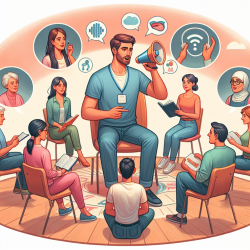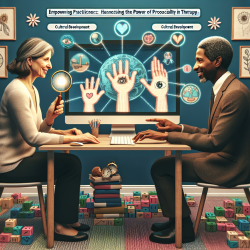Introduction
The COVID-19 pandemic has underscored the intrinsic link between health and human rights, highlighting the necessity of rights-based approaches in public health responses. This principle, first identified during the HIV/AIDS pandemic, has evolved to provide a robust foundation for the current global health crisis. As practitioners, especially those working with children, understanding and implementing these findings can significantly improve outcomes.
Key Takeaways from the Research
The research article "Health and human rights are inextricably linked in the COVID-19 response" presents several crucial points:
- Human rights should guide government responses to COVID-19, strengthening the public health response by framing restrictions on individual liberties, managing impacts on medical care, and realizing global solidarity through international collaboration.
- Emergency laws must be necessary, proportionate, and non-arbitrary to protect public health without unduly infringing on individual rights.
- Governments must prioritize protecting the most vulnerable populations through transparent policymaking and public participation.
- States have obligations under the human right to health to ensure accessible, acceptable, and good quality health responses to prevent and treat COVID-19.
- Economic and social rights are essential to support health determinants during physical distancing, including rights to work, social security, housing, food, water, and sanitation.
Implementing Research Outcomes in Practice
As a practitioner, integrating these human rights principles into your practice can create better outcomes for children. Here are some actionable steps:
1. Advocate for Rights-Based Approaches
Encourage schools and institutions to adopt policies that respect and protect children's rights. This includes ensuring access to necessary resources and support for children, especially those from vulnerable populations.
2. Promote Transparency and Participation
Engage with parents, caregivers, and the community to build trust and cooperation. Transparent communication about the measures being taken and their scientific basis can enhance compliance and support.
3. Ensure Accessibility and Quality of Services
Work towards making online therapy services accessible to all children, regardless of their socio-economic background. This might involve advocating for better funding, resources, and training for educators and therapists.
4. Address Social Determinants of Health
Recognize the broader social and economic factors that impact children's health. Collaborate with other professionals to provide holistic support, including access to food, housing, and social security.
Encouraging Further Research
While the research provides a strong foundation, continuous learning and adaptation are crucial. Encourage your peers to stay informed about the latest findings and to conduct further research in their practice areas. This not only enhances individual knowledge but also contributes to the collective understanding of effective responses to health crises.
Conclusion
The COVID-19 pandemic has highlighted the critical role of human rights in public health responses. By integrating these principles into your practice, you can help create better outcomes for children, ensuring they receive the support and care they need during these challenging times.
To read the original research paper, please follow this link: Health and human rights are inextricably linked in the COVID-19 response.










